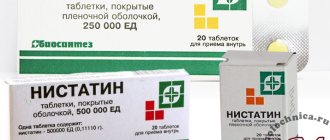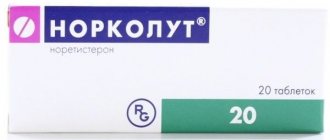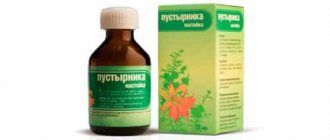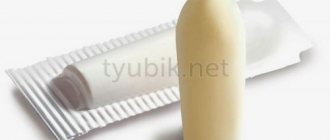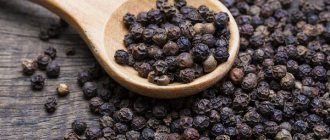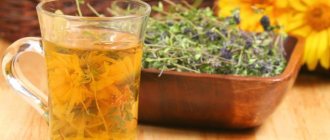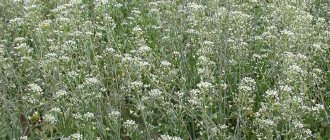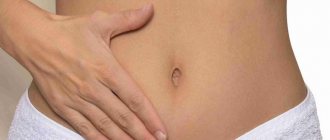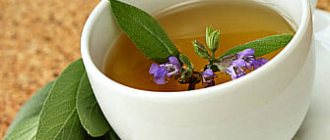Menstruation is a very important process that occurs monthly in the body of women of reproductive age. But there are situations when there is an urgent need to look for means that can influence this natural phenomenon. More precisely, we are talking about excessively intense discharge, acute painful sensations, as well as cases when critical days fall on inconvenient dates.
To get rid of the unpleasant symptoms described above and take control of the situation, a woman can use water pepper tincture.
Features and nuances of treatment
The effectiveness of medicinal potions based on water pepper was proven in ancient Rome. Tinctures based on the plant replaced painkillers and wound cleansers. The wonderful properties of such elixirs are easily explained by their composition. The components of the tinctures help stop internal bleeding. This occurs due to the glycoside polygopiperine and vitamin K. In addition, the tincture contains a flavone glycoside. It is this substance that strengthens blood vessels, making them more elastic and resistant to adverse processes. No less important and useful elements are: manganese, magnesium, titanium and silver.
It is recommended to resort to preparations containing water pepper in situations where the body needs to provide homeostatic and anti-inflammatory support, or to influence the process of blood clotting. Preparations based on it are successfully used to stop bleeding that does not pose a particular danger to human life and health.
Due to the unique properties of the plant, preparations based on it are actively used in modern medicine. Tincture of water pepper is included in the treatment regimen after childbirth, medical abortions, operations to remove uterine polyps, and for various pathologies during menstruation. Gynecologists also recommend the extract to women whose bleeding has been prolonged for too long in the postpartum period.
The tincture is used as an effective means of promoting uterine contraction after childbirth. It is used in the treatment of sand and kidney stones, varicose veins and some other diseases.
Medicines in which the main active substance is water pepper can be used for the following purposes:
- as a wound healing agent;
- hemostatic;
- painkiller;
- anti-inflammatory;
- diuretic;
- Also, the extract of this plant helps to normalize the functioning of the gastrointestinal tract.
Indications for use
Women are often prescribed water pepper extract by gynecologists to contract the uterus. But this is not the only indication for use. Doctors recommend drinking the tincture also for hemorrhoidal and uterine bleeding.
The extract, when used correctly, can normalize the condition:
- with atony of the uterus (if it does not contract due to paralysis of the neuromuscular system);
- with uterine hypotension (in situations where, with a preserved reflex response, its tone is reduced and the muscles do not contract properly);
- after natural childbirth, curettage, cesarean section, abortion, miscarriages, when it is necessary to speed up uterine contractions and reduce the intensity of bleeding.
Although the list of situations in which lovers of traditional medicine use water pepper tincture is much wider. Healers recommend peppercorn for:
- heavy menstruation;
- tumors (including malignant);
- headaches;
- problems with urination;
- malaria.
The extract is also used as an anti-inflammatory, analgesic, and antiseptic.
When purchasing a remedy for uterine contraction, it is important not to confuse red pepper tincture and water pepper tincture. Tincture of red capsicum is intended for other purposes; it is used mainly for external use.
How to take water pepper tincture to regulate menstruation
The use of the tincture will bring the expected result and will help eliminate several unpleasant symptoms at once.
- 1. Excessive pain during menstruation.
Menstruation can cause more than just moral discomfort in women. In some cases, this process is accompanied by severe pain. Naturally, in such situations, a woman is not able to calmly go about her daily activities. This negatively affects its performance. But don’t rush to swallow painkillers.
The problem in such cases is caused by spasm. A tincture based on water pepper will help return the smooth wall of the uterus to its normal state (and, accordingly, relieve the painful symptom).
- 2. PMS. This process is familiar to many women. It is characterized by such symptoms as: increased irritability, anxiety, apathy and a depressive mood. All this can be easily avoided. A unique tincture will relieve unpleasant symptoms. It is recommended to use the drug several days before the expected start date of menstruation and continue treatment for several days after its completion.
- 3. Such tinctures will be an effective assistant in the fight against intestinal disorders, which often occur during menstruation. It should be noted that if the disorder was caused by an infection, water pepper is powerless.
- 4. With prolonged menstruation. The use of water pepper is justified in cases where bleeding continues for more than seven days. A homemade product will help you deal with this effectively. To prepare it you will need: 40 g of dry crushed plant and 500 ml of hot water. The resulting solution must be kept in a water bath for five minutes. Next, cover tightly with a lid and let it brew for 2-3 hours. Recommended dose: 100 ml every 6-8 hours.
- 5. Excessive rashes on the skin on the eve of critical days. During the period when the body prepares for the onset of menstruation, the amount of progesterone increases sharply. It is this hormone that can increase the secretion of sebum. The epidermis becomes oilier. As a result, acne appears. Water pepper will help change the situation. The plant helps restore progesterone levels to normal levels. The likelihood of rashes is minimized.
These are not all the situations in which pepper tincture can help. There are other, no less important properties of the plant that can help a woman during her period. It is worth learning about them in more detail.
Use during menstruation
Water pepper is actively used in gynecology. It is used for:
- The appearance of bleeding in the middle of the cycle;
- Prolonged menstruation, lasting more than 7 days;
- Pronounced symptoms of PMS: mood swings, pain, etc.;
- Copious discharge, accompanied by severe pain;
- Skin inflammation during menstruation;
- Presence of blood clots in the secretion.
Water pepper affects hormonal levels and normalizes the menstrual cycle. Due to its hemostatic properties, it is sometimes used to delay menstrual periods. This is only allowed in emergency situations. Delay is possible for 2-3 days.
How to use water pepper tincture during menstruation
In different cases, the drug is taken in different ways. It all depends on the effect you want to get. The tincture is used to adjust the period of menstruation, delay the onset of menstruation, and also to reduce the intensity of bleeding. To eliminate possible side effects, follow your doctor’s recommendations and the instructions for the drug.
Water pepper for heavy periods
For intense bleeding with severe pain, a long course of therapy is recommended. It is valid for 90 days. During this period, you need to drink 30 drops of the medicine before meals. Regularity of administration: twice a day. The tincture is taken half an hour before meals.
If symptoms return, the course can be repeated. However, it's worth taking a break. The minimum interval between taking the medicine should be at least one month.
Water pepper for long periods
If bleeding continues for more than 7 days, it should be stopped artificially. To do this, use a decoction of water pepper:
- Take 40 grams of dry pepper and chop.
- Pour the powder into 500 milliliters of water and cook for 5 minutes over medium heat.
- Let the broth stand for at least 2 hours.
- Take 100 milliliters 3-4 times a day.
Water pepper for heavy periods
Can water pepper tincture affect the volume of discharge during monthly bleeding in women? The answer is clear: “Yes!”
You should resort to the drug in the following cases:
- Excessively intense discharge. One of the direct indications for taking such drugs is heavy bleeding. The tincture helps normalize the volume of discharge.
- Uterine bleeding, regardless of the factors that provoked it.
- The appearance of discharge between menstruation.
The agents that make up knotweed are capable of “sealing” the vessels of the circulatory system. And the main part of the discharge during menstrual bleeding is its contents. The endometrium, which the body rejects during menstruation, consists of a huge number of vessels. Rutin and vitamin K help strengthen their walls. These substances are found in large quantities in the plant.
The use of water pepper in cases of heavy menstruation allows you to normalize the ratio of hormones. Thanks to this, the volume of secretions is reduced to an optimal level.
Beneficial features
Flavone glycosides, which are part of water pepper, help normalize the process of blood clotting. In addition, they, together with essential oil and tannins, have a strong bactericidal effect and accelerate contractions of the uterine muscles, which is necessary for many women after childbirth. Tannins also act as an astringent for inflammation of the mucous membranes and intestinal disorders.
The hemostatic property of water pepper is due to the presence of vitamin K and polygoperine glycoside in its composition.
Organic acids, quercetin, kaempferol, ramnazin and some other substances contained in the medicinal plant reduce the permeability and fragility of blood vessels and capillaries.
Ascorbic acid and rutin have a calming effect on the nervous system.
Water pepper extract is also found in anti-hemorrhoid suppositories, as well as in preparations used for diarrhea. Some folk medicines with this plant help get rid of hardening and, in some cases, tumors.
Is it possible to use peppermint to delay the onset of menstruation?
Menstruation often disrupts a woman's plans. But there are situations when it is really important to postpone this process for a while. Tincture of water pepper will help a woman solve this problem. But do not forget that experiments with the cycle can lead to negative health consequences. If you do not abuse it and use the medicine only in emergency situations, nothing dangerous will happen.
Products based on water pepper can delay menstruation for no more than three days.
Features of the plant
Water pepper is considered a weed and always grows near water. Another name for it is peppermint. It has many healing properties, which are recognized not only by folk, but also by official medicine. The most valuable are the leaves and stem, which have a burning taste. You can prepare a healing decoction at home or buy a ready-made tincture of the plant at a pharmacy. The medicine contains a complex of vitamins, flavonoids, tannins, thanks to which it effectively fights microbes, relieves inflammation, and eliminates pain. But the main feature of the herb is its beneficial effect on blood vessels.
Making tincture at home
There are several options for preparing a medicinal tincture. The most commonly used recipe is the following.
There are only two ingredients: a tablespoon of the herb itself and a glass of drinking water. Add pepper to the water and heat the resulting mixture in a water bath. Next, the broth must be allowed to brew for 40-45 minutes.
In cases where you need to obtain a medicinal extract yourself, take 100 grams of crushed herbs and 100 grams of alcohol. The ingredients are mixed. The extract is ready for use. It is recommended to use it three times a day. The course of treatment is three months.
The effect of the tincture
An infusion of water pepper is primarily used for the recovery of women after childbirth, heavy menstruation, and bleeding from hemorrhoids. It works effectively due to its analgesic, sedative, anti-inflammatory, antiseptic, astringent, and hemostatic properties. When used in herbal preparations with other plants, it gives a positive effect in the treatment of rheumatism, ulcers on the mucous membranes, diarrhea, chronic diseases of the small and large intestines (colitis, enterocolitis).
Diseases for which such therapy is dangerous
Do not forget that in some cases, preparations based on water pepper can lead to irreversible consequences that are adverse to a woman’s health. The plant is prohibited for people suffering from the following diseases:
- hypertension;
- intestinal diseases;
- jades;
- heart pathologies.
Like most medicines, water pepper can cause unwanted side effects. Some women may feel nausea, dizziness and headache after taking the drug.
For those who have any abnormalities in kidney function, the use of water pepper-based products is strictly prohibited. It is worth considering possible allergic reactions of the body. In most cases, allergies manifest themselves in the form of hives.
Contraindications
The tincture is contraindicated for:
- Chronic diseases of the cardiovascular system, as well as hypertension. This category includes people suffering from high blood pressure and angina. It is forbidden to use the tincture for persons who have recently suffered a heart attack.
- Diseases of the excretory system, impaired renal function. Water pepper stimulates urination, which has a negative impact on health.
- Frequent constipation. The drug will accumulate in the body, which can lead to an imbalance. Liver failure;
- Severe allergic reactions provoked by hypersensitivity to active substances,
- Pregnancy. Water pepper affects the condition of the uterus. In the early stages, this can lead to termination of pregnancy. In the second and third trimester to premature birth.
- Increased blood clotting. The drug itself causes clotting, its use in this case can provoke thrombosis.
- To avoid side effects, consult a specialist before use.
How to collect
For medicinal purposes, the aerial parts of the plant are collected during the flowering period. The grass is cleaned of dirt, darkened and rotten leaves, washed under running water and dried.
The cleaned raw materials are laid out on a tarpaulin and dried in a shaded, well-ventilated area. The raw materials are also dried in automatic dryers at a temperature of 40 to 50 degrees.
After drying, the knotweed herb loses its pungent taste, but the bitter taste still remains. Store medicinal raw materials in paper envelopes or fabric bags in a dry, dark place. Shelf life: 2 years.
The plant is also harvested for culinary purposes. The grass is collected during the fruiting period along with the seeds. The raw materials are used fresh and crushed before adding to dishes.
Use of the plant in cosmetology
Pepper extract is used in cosmetology; the product eliminates unwanted manifestations on the skin of the face - burning, soreness, itching, pimples. Also used for:
- softening and reducing inflammation;
- skin moisturizing;
- comprehensive prevention of aging;
- reducing the number of harmful bacteria on the epidermis;
- comprehensive prevention of acne;
- eliminating seborrhea.
INTERESTING fact: Propolis against worms and parasites
The hair mask accelerates growth and prevents hair loss. Combine the tincture with oily vitamin E and rub into the scalp. The procedure lasts 20 minutes. Then wash your hair with shampoo.
Hair tincture
Wild mustard hair tincture is the most effective remedy to strengthen hair follicles and make curls beautiful. The infusion helps against hair loss and baldness. The tincture will require raw materials and an alcohol base in a ratio of 1 to 6. The product is used as a basis in the preparation of masks to strengthen and nourish hair.
The combined use of castor oil and wild mustard tincture is a great way to make your curls beautiful. The procedure lasts a quarter of an hour.
Chemical composition
The above-ground part of the plant contains the following substances:
- essential oils;
- ascorbic acid;
- tannins;
- acetic acid;
- formic acid;
- Apple acid;
- valeric acid;
- rutoside;
- carotene;
- tocopherol;
- flavonoids;
- ergosterol;
- phytosterol;
- glycosides;
- naphthoquinone;
- acetylcholine;
- Sahara;
- iron;
- manganese;
- silver.
